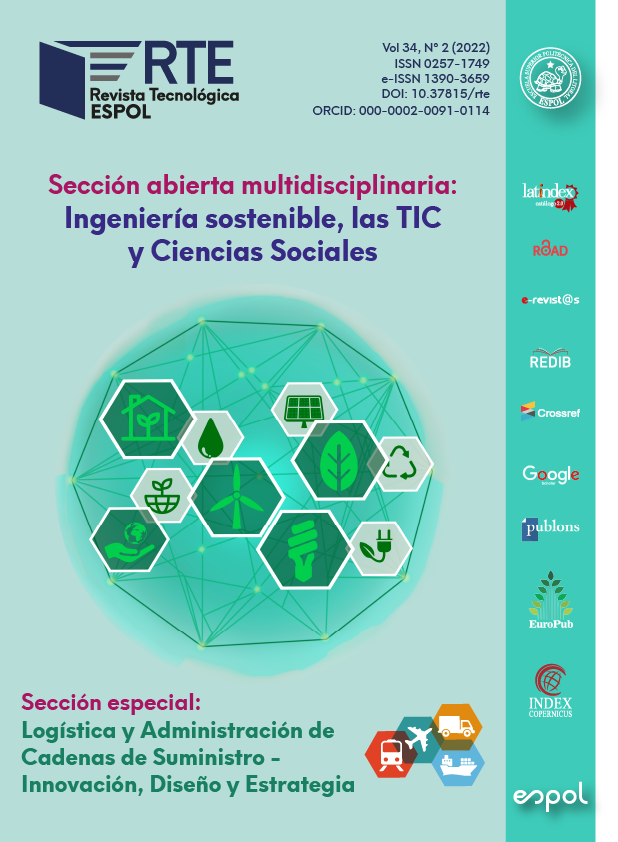This research aims to present the usefulness of sentiment analysis in the comments issued by users of tourism services on social networks (Twitter and Trip Advisor), which allows rating the level of such services. This case study is set in the city of Quito-Ecuador. The research develops a computer system using Big Data tools (Python, Node.Js, Mongo DB) to collect, store, and process large amounts of information. The Node.js programming language libraries, Puppeteer and Sentiment, make it possible to obtain comments from the social networks Twitter and Trip Advisor and determine a score for the observed tourist destination. Among the novel aspects of this research is the use of the social network Twitter as a source of data origin and web scraping techniques from the Trip Advisor site. This study uses the Twitter Application Programming Interface (API) to obtain data from this social network in real-time, facilitating the evaluation of the tourist services. Results determine that this tool allows the generation of knowledge to decide the quality level of the services received in the visited sites.

This work is licensed under a Creative Commons Attribution-NonCommercial 4.0 International License.
References
Aguilar, L. J. (2013). Análisis de grandes volúmenes de datos en organizaciones. Mexico: Alfaomega Grupo Editor, S.A.
Algecira, C. (2020). Arquitectura de Big Data para el análisis de sentimientos multimodales en el sector turístico del Departamento de Boyacá, Colombia. Boyacá: Universidad Santo Tomás Sede Tunja.
Ángel Patricio Fajardo Cárdenas, Néstor Ariel Bravo Chuqui, Andrés Vinicio Auquilla Sangolqui, & Paúl Fernando Vanegas P. (2021). Plataforma para el Análisis de Mercado a través de Datos de Redes Sociales. Guayaquil: Resvista RTE.
Arias, Á. (2017). El uso de la plataforma trip advisor. Estuduo de caso: Los comentarios sobre los Hoteles en Valladolid. Valladolid: Universidad de Valladolid.
Char Js. (01 de 02 de 2022). Performance. Performance: https://www.chartjs.org/docs/latest/general/performance.html
Escribano, Á. A. (2017). El uso de la herramienta Trip Advisor. Estudio de Caso: Los comentarios sobre hoteles de Valladolid. Segovia: Universidad de Valladolid.
Fajardo, Á., Auquilla, A., & Vanegas, P. (2021). Plataforma para Análisis de Mercado a través de Datos de Redes Sociales. Guayaquil: Revista Tecnológica Espol.
Google Developers. (03 de 02 de 2021). Tools for Web Developers. Tools for Web Developers: https://developers.google.com/web/tools/puppeteer/
Herrera, N., Sánchez, H., Macías, M., & Gómez, E. (2016). Analysis of the factors generating vehicular traffic in the city of Quito and its relation to the application of sensorial and social data with big data as a basis for decision making.
Kalpakjian, S., & Schmid, S. (2016). Manufactura, ingenieria y tecnologia. Mexico: Pearson.
Krishna, S. (01 de 07 de 2018). Facebook puts more limits on developer access to user data. Facebook puts more limits on developer access to user data: https://www.engadget.com/2018-07-02-facebook-limit-api-developer-app-data.html?sr_source=Twitter
Letelier, P., & Penadés, M. (2016). (XP), Métodologías ágiles para el desarrollo de software: eXtreme Programming. Técnica Administrativa.
Martínez, X., & Piñeiro, T. (2020). Turismo y Big Data. Propuesta de Análisis de la capa social a través de metadatos y publicaciones sociales. Portugal: Cultura, património e turismo na sociedad de digital.
Ministerio de Turismo del Ecuador. (2019). Plan Estratégico Institucional 2019-2021. Ministerio de Turismo del Ecuador.
Node Js. (15 de 01 de 2022). Dependencias. Dependencias: https://nodejs.org/es/docs/
Padilla, C. (2019). Big Data, una herramienta para apoyar en decisiones del sector hotelero en Quito-Ecuador. Quito: Revista UIDE.
Rik, J., & Tim de Boer. (2011). Twitter An Architectural Review. Utrecht: Software Architecture Faculty of Science University of Utrecht. Netherland: Faculty of Science University of Utrecht.
Synonimos. (12 de 02 de 2022). Synonimos. Synonimos: http://www.sinonimos.com/
Tello, J. M. (2019). Potencial aplicación del Big Data al sector turismo con especial referencia a España. Madrid: Universidad Pontificia Comillas.
Twitter. (2022). Centro de ayuda. Información sobre las API de Twitter: https://help.twitter.com/es/rules-and-policies/twitter-api
Zicopoulos, P., Chris, E., Dirk, D., Tom, D., & George, L. (2011). Analytics for Enterprise Class Hadoop and Streaming Data. McGraw-Hill Osborne Media.







